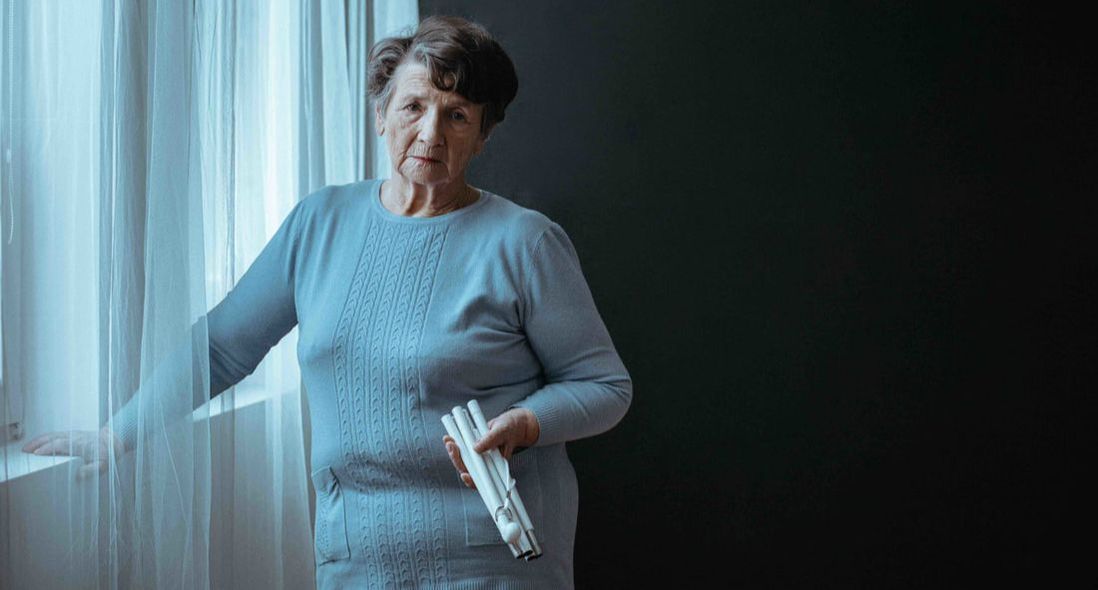|
A few years before my mother passed away, she asked me to take over her finances. She had become increasingly forgetful and fuzzy with numbers, and she was afraid she might make a costly mistake. I was glad to help out. One of the first things I discovered was that my mother was very generous with her money. She frequently donated to a number of causes -- from political action committees supporting women candidates to animal-rights groups to law-enforcement organizations. When I asked her why she gave to certain groups, she answered, “Oh, they’re always calling for money.” That led to a conversation with an aide we had hired to help take care of my mother. The aide told me my mother often received calls from people asking for money -- in some cases from people who sounded suspicious. I could feel my blood start to boil. Ironically, even as the aide and I were discussing this out of earshot of my mother, the phone rang. My mother took the call. I listened from the other room as she answered a series of questions. After a while, my mother yelled to the aide to fetch her pocketbook. “Why do you need your pocketbook?” I asked. “He needs my credit card,” she said. “Who? For what?” “I’m not sure.” That was enough. I asked my mother if I could talk to the man and she handed me the phone. “Who is this?” I asked. The man mumbled something and asked me who I was. “I’m her son,” I said. Click. I never did find out who that was on the phone, what they wanted, or whether they represented a legitimate business or charity. My mother wasn’t sure either. But such incidents became increasingly common as my mother grew older and lost her edge mentally. Before I took over her finances, it wasn’t unusual for her to write a check to the same organization two or three times in a month. And she once received a large package from a company that sells expensive emergency-alert systems for the elderly. “Did you order this?” I asked her. “No, I don’t think so,” she answered. After many hours on the phone, I finally got the company to take back the equipment. But they refused to refund more than $500 that had been billed to my mother’s Visa card. My mother was fortunate. The amounts of money she misspent or misplaced were relatively small. Many other elderly women and men aren’t nearly so lucky. The Daily Item, a Massachusetts newspaper, recently published an excellent series on elder abuse, including financial abuse, that detailed a number of horrifying cases. One involved a retired reverend who took a call from a man identifying himself as a San Diego police officer. The reverend, 78, was told his grandson was being held in jail and that it would take $43,000 in cash to get him out. The loving grandfather mailed the cash -- only to discover later that it had been a hoax. Another case involved an 85-year-old woman who became friendly with a worker at a local senior-services agency. Over time, the agency employee persuaded the elderly woman to change her will, naming her as a beneficiary. She also helped the woman take out a home equity loan, then pocketed the proceeds. “Elder victims of financial exploitation have lost homes, pensions, life savings, had utilities shut off, and suffered other financial hardships,” the newspaper report says. According to Consumer Union, publisher of Consumer Reports, some 500,000 elderly Americans lose up to $36 billion annually due to financial abuse. Among the most popular scams, according to the National Adult Protective Services Association, are callers who say you’ve won a sweepstakes but first must send money to cover taxes; home-repair cons in which a scammer promises to do work cheaply, then disappears with your money; fraudulent fund raisers who solicit donations for ostensibly good causes; and individuals posing as utility workers who knock on your door looking to steal items from your home. The protective-services association repeatedly reminds senior citizens that as a matter of policy, lottery agents, police and the IRS never call to ask anyone for cash. The association urges people not to give out information to strangers -- particularly bank account, credit card, and Social Security numbers. The best way to prevent financial abuse of the elderly is for their children or other relatives to get involved. The newspaper series on elder abuse recommends family members take the following steps:
John Wasik, a personal-finance columnist for Forbes magazine, has written frequently on the topic of financial abuse of the elderly. “The best weapon in the fight against elder financial abuse is vigilance,” he wrote in a recent column. “Have a family meeting ... to discuss how to best protect a loved one.” Wasik recommends talking to older adults about assigning power of attorney to younger family members before it’s too late. “At a certain age, your older relatives will be unable to do things like pay bills or monitor their investments,” Wasik says. “It’s a natural consequence of age and cognitive decline -- and they may be suffering from dementia. I recommend that more than one person in a family be granted power of attorney.” What exactly is power of attorney? How does one establish it, and how much does it cost? In my next blog, I’ll put these and other questions about power of attorney, or POA, to Dana Bennett, a Red Bank attorney who specializes in estates-and-trusts law. Written by T.J. Foderaro
2 Comments
12/19/2023 04:31:24 am
I wanted to express my gratitude for your insightful and engaging article. Your writing is clear and easy to follow, and I appreciated the way you presented your ideas in a thoughtful and organized manner. Your analysis was both thought-provoking and well-researched, and I enjoyed the real-life examples you used to illustrate your points. Your article has provided me with a fresh perspective on the subject matter and has inspired me to think more deeply about this topic.
Reply
12/19/2023 04:41:07 am
I wanted to express my gratitude for your insightful and engaging article. Your writing is clear and easy to follow, and I appreciated the way you presented your ideas in a thoughtful and organized manner. Your analysis was both thought-provoking and well-researched, and I enjoyed the real-life examples you used to illustrate your points. Your article has provided me with a fresh perspective on the subject matter and has inspired me to think more deeply about this topic.
Reply
Leave a Reply. |
AuthorT.J. Foderaro Archives
February 2020
Categories
All
|
Copyright © 2023, Twin Lights Home Care, All RIghts Reserved

 RSS Feed
RSS Feed
